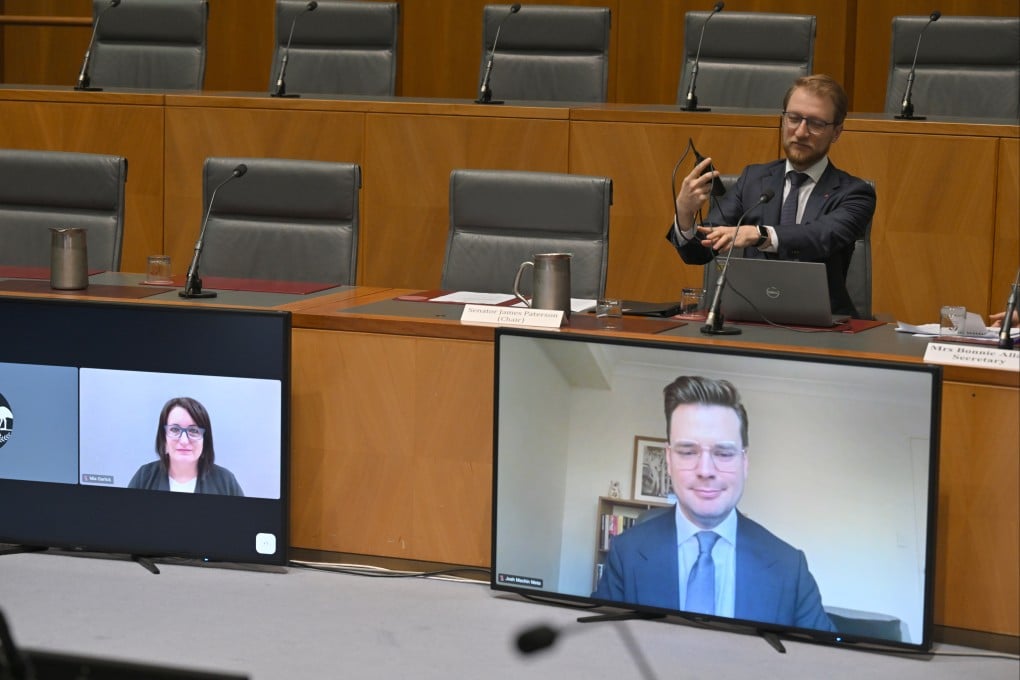Australian lawmakers grill TikTok, Meta officials over China links, foreign interference, Covid-19 origins
- Executives were questioned on their companies’ links to China, alleged human rights abuses in Xinjiang and restricting details about Covid-19’s origins on their platforms
- The committee also debated whether to ban WeChat in Australia, despite researchers arguing the move would hurt the country’s democracy and social cohesion

TikTok’s Australian director of public policy Ella Woods-Joyce said the company did not “censor or promote content based on any political sensitivity”, but Paterson asked her why only “5.6 per cent” of TikTok content on Xinjiang in August 2020 was critical of the Communist Party, citing research from the Australian Strategic Policy Institute think tank.
“So it’s just a coincidence, that 95 per cent of the content about Xinjiang on TikTok is positive, when bodies like Human Rights Watch, and Amnesty International, and the United Nations and many governments around the world, said there’s either crimes against humanity, genocide, or other serious human rights abuses happening? Does that sound natural to you?” he said.
“Let me ask you your opinion, do you think there are human rights abuses occurring in Xinjiang?”